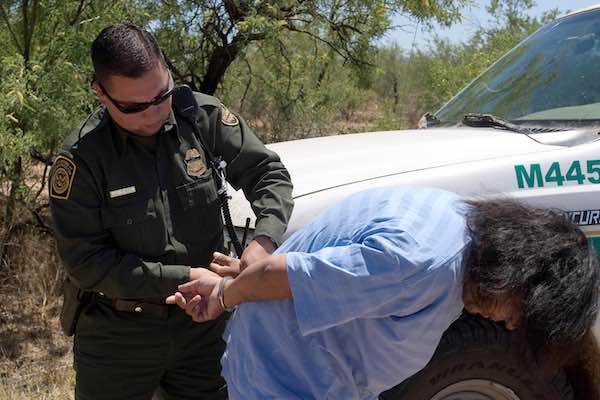Study: Consequences Cut Illegal Immigration
Prosecuting illegal immigrants, or banning them from obtaining a visa, substantially reduces their likelihood of attempting to cross the border a second time, a new study concludes.
Although it only discusses a policy rolled out between 2008 and 2012, the study may have major implications for President Donald Trump’s zero tolerance approach to immigration enforcement, which still requires the prosecution of most childless border crossers.
The paper is a collaboration between two university professors and three researchers with the government-funded Institute for Defense Analyses. To conduct their analysis, the authors obtained detailed, person-level data on apprehensions at the southwestern border between fiscal years 2005 and 2012. They used fingerprint data to link repeated apprehensions, building a picture of who crossed the border and at what time.
The researchers were interested in the effect of the U.S. Border Patrol’s Consequence Delivery System program. Rolled out between 2008 and 2012, the CDS set up three different levels of sanctions for the people that USBP apprehends: precluding the detained person from acquiring a visa in the five years following detention, repatriating the person at a location far away from where they entered (to stymie efforts to reconnect with smugglers), and criminal prosecution.
Read the rest of the story HERE.







Comments are closed.